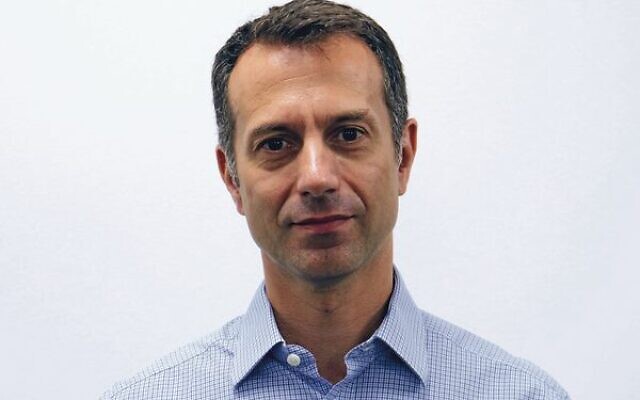Expert’s view of antisemitism post-October 7
Gareth Narunsky chats with Dave Rich, director of policy at the UK's Community Security Trust (CST) and author of The Left's Jewish Problem and Everyday Hate.
What have you observed in the UK and what are your observations since arriving in Australia?
In the UK we’ve seen a massive spike in antisemitic hate crime. From October 7 until the end of last week, we’ve recorded over 1000 incidents, roughly a 500 or 600 per cent increase on the same period last year. On top of that, we’ve had countless anti-Israel protests … some [with] explicit support for Hamas, antisemitic chants and placards.
In Australia … from talking to people in the community the impression I get is that you’re seeing very similar types of behaviour. And while the scale and numbers might be different, the nature of what’s driving it and the ideas and the language seems to be pretty global.
How do you explain ordinarily decent left-wing people joining these demonstrations?
I’m happy to accept that a lot are there not because they are extremists or antisemites but because they see what’s happening in Gaza and they want people to stop dying.
But the first demonstrations we saw were organised within hours of the Hamas attack and Israel had barely had a chance to respond. Those were much smaller, but the people in those demonstrations, they were going to celebrate. Let’s be honest and clear about this.
So we know within this movement, there are extreme, antisemitic elements. I do think a lot of people who support the wider movement … they don’t necessarily understand the motivations of some of the people who organise these protests. And I certainly think they don’t understand – or I hope they don’t understand – the impact it has on Jewish communities.
We’ve seen posters in Sydney equating Benjamin Netanyahu with Hitler.
It’s very common on the anti-Israel left. It’s appalling, I think unequivocally antisemitic. It takes the Holocaust, the greatest tragedy in our history and still such a sensitive and painful memory for all Jewish people, and uses it as a weapon to attack the world’s only Jewish state. It can only be antisemitic.
We’re seeing a lot of people who are not explicitly comparing Israel to Nazi Germany but are saying what Israel is doing in Gaza is genocide. I think subliminally the allegation is a way of getting the Nazi comparison in kind of, coded language.
And you see so-called anti-racists tearing down hostage posters.
Quite possibly this is the most upsetting thing. It’s so dehumanising. It’s hard to fathom how heartless people would have to be to deny that basic level of human compassion to ordinary Israelis.
I think there’s a few things that drive it. One is just a basic denial of the facts of what’s happened.
It’s also linked to a desire to not have to confront the reality of what Hamas did, because it complicates people’s understanding of this being a very simple story of Israel being the oppressor, the Palestinians being the oppressed.
Also there’s a dehumanisation of Israelis, a strong belief that Israelis are not deserving of equal rights [like] everyone else, and this comes from the narrative that Israel is a settler colonial state that has no legitimacy. And therefore if they’re all colonisers, then they don’t have any rights.
What can we do?
We should be strong [and] resilient. It’s also important to keep the broader perspective of how many friends and supporters we do have, that most people are horrified by what Hamas did. Most people are appalled by antisemitism. The support from governments in our respective countries and from police is really crucial.
We have strong, well organised, robust, resilient communities with really good Jewish communal life, and it is worth protecting and celebrating. The challenge for us is to keep that going, to be strong, to be resilient.
Should ordinary, decent non-Jews be speaking out?
Most decent, ordinary people are appalled by antisemitism, and it makes a huge difference when people speak out. If you have Jewish friends, colleagues, classmates or neighbours, sometimes it can mean the world just to show your sympathy and ask them how they are doing. And if you see antisemitism happening, please don’t just walk on by – speak out and condemn it.
You’re here for a Kristallnacht event. What is the role of Holocaust education in all this?
Holocaust education is absolutely vital. [But] it doesn’t necessarily provide the answer to teaching about all types of antisemitism. This is not to denigrate Holocaust education … if people take the message from Holocaust education that this is something that happened in history, if there isn’t a connection made to today, then it’s not doing as complete a job as we need, because we need people to understand what antisemitism looks like and where it comes from today.
Dave Rich is speaking at the NSW Jewish Board of Deputies Kristallnacht commemoration tonight (Thursday).
Register: events.humanitix.com/2023-kristallnacht-commemoration


comments